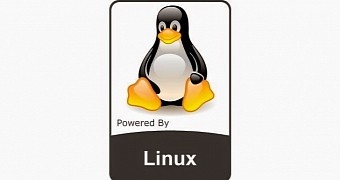As expected, Linus Torvalds proudly announced today, April 30, 2017, the general availability of the final release of the Linux 4.11 kernel, a major update that adds numerous improvements and new features.
Linux kernel 4.11 has been in development for the past two months, since very early March, when the first Release Candidate arrived for public testing. Eight RCs later, we're now able to download and compile the final release of Linux 4.11 on our favorite GNU/Linux distributions and enjoy its new features.
Prominent ones include scalable swapping for SSDs, a brand new perf ftrace tool, support for OPAL drives, support for the SMC-R (Shared Memory Communications-RDMA) protocol, journalling support for MD RAID5, all new statx() system call to replace stat(2), and persistent scrollback buffers for VGA consoles.
"We still had various smaller fixes the last week, but nothing that made me go 'hmm..'. Shortlog appended for people who want to peruse the details, but it's a mix all over, with about half being drivers (networking dominates, but some sound fixlets too), with the rest being soem Arch updates, generic networking, and filesystem (nfs[d]) fixes," said Linus Torvalds in today's announcement.
The Linux 4.11 kernel also introduces initial support for Intel Gemini Lake chips, which is an Atom-based, low-cost computer processor family developed using Intel's 14-nanometer technology, and better power management for AMD Radeon GPUs when the AMDGPU open-source graphics driver is used.
Support for SMB3 per-share encryptions landed in the CIFS file system, journaling support is now available to the device-mapper RAID 4/5/6 implementation, Opal storage specification and I/O scheduling support arrived in the multiqueue block layer, and there's a new psample module for sampling an interface's packets.
New hardware support, updated drivers, other improvements
To facilitate the communication over an RDMA transport, Linux kernel 4.11 ships with a new SMC-R socket type, the LLVM/Clang compiler can now be used to compile user-space perf tools, and there's support for numerous new devices, ARM SoCs, etc. (a more or less complete list can be viewed in the appended shortlog).
Lots of drivers were updated in this release, thus improving support for some hardware, such as Nvidia GPUs and Wacom tablets. A new control-group controller facilitates access to RDMA bandwidth and resources, swapping was improved as well, and the EXT4, Btrfs, XFS, and F2FS filesystems received minor optimizations.
The source tarball of the Linux 4.11 kernel is available for download right now from the kernel.org, or via our website, if you want to compile it on your Linux computer, but it's currently tagged as "mainline," which means that we expect it to land on the stable repos of our favorite distro when the first point release gets out in the coming weeks. The merge window for Linux kernel 4.12 is now officially open!

 14 DAY TRIAL //
14 DAY TRIAL //